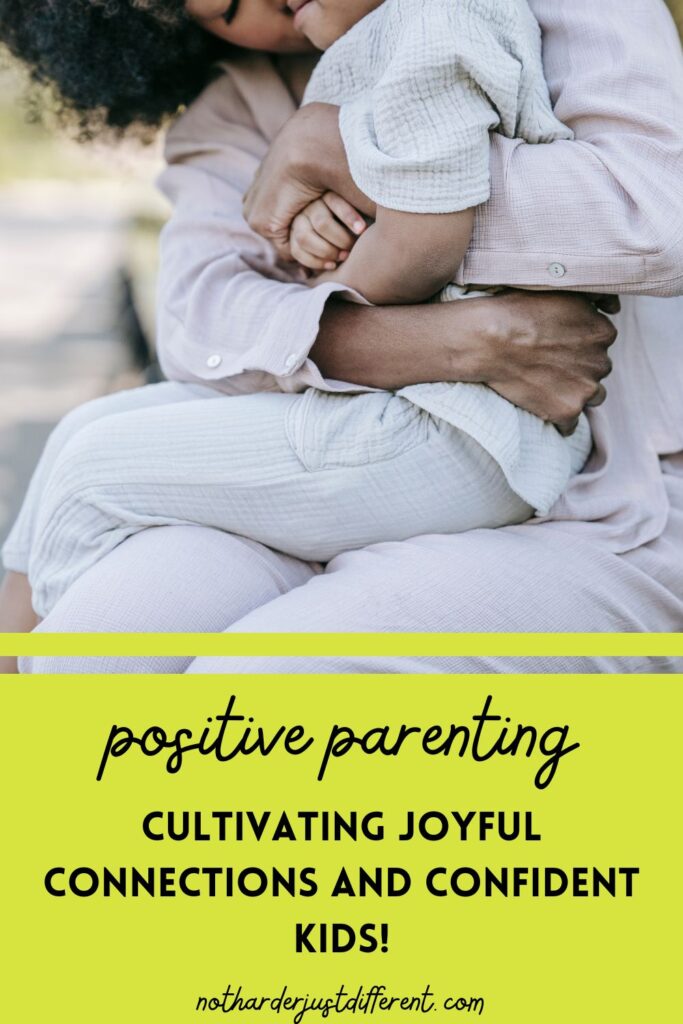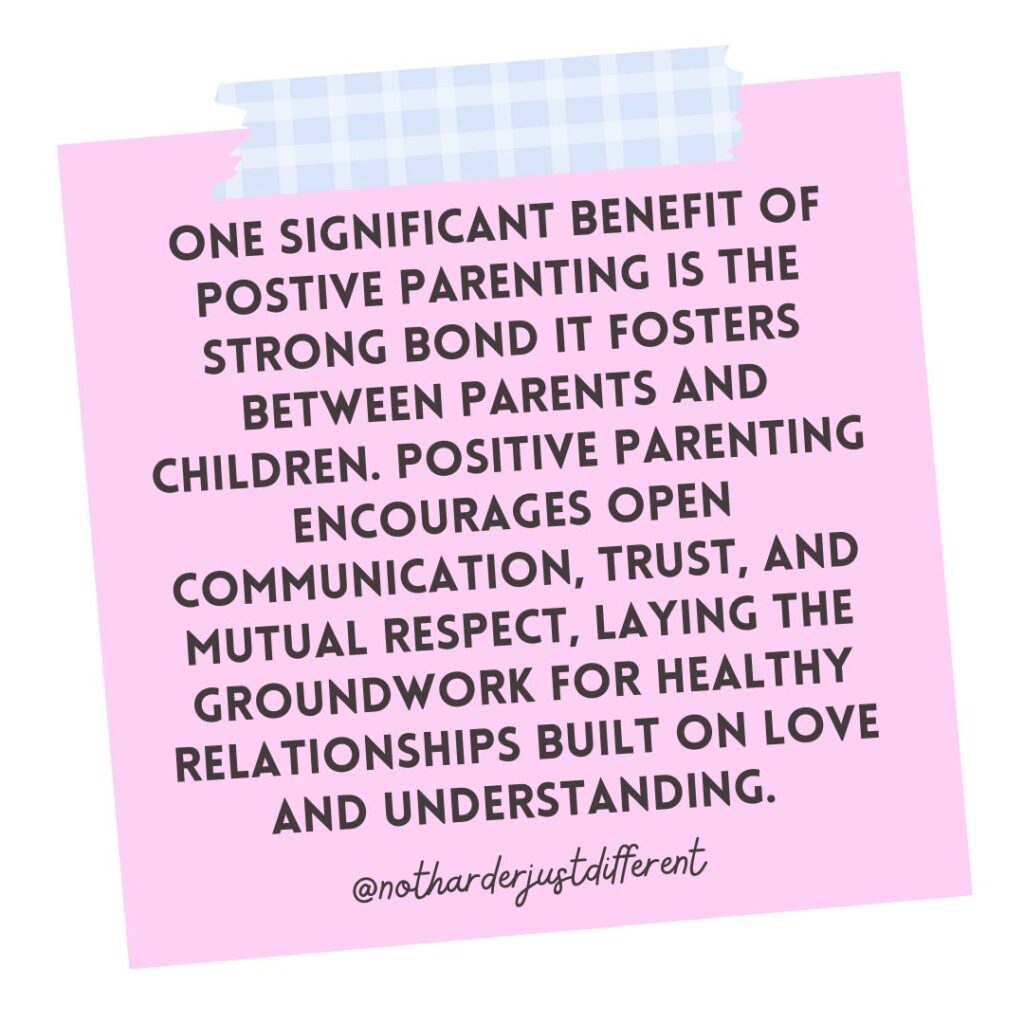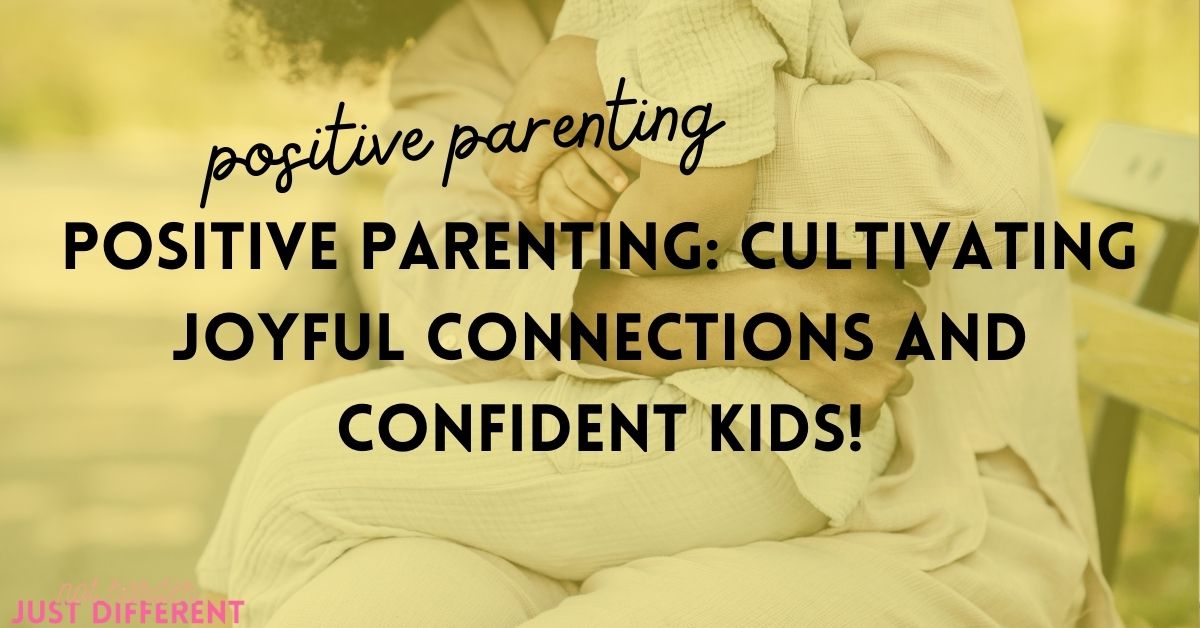Disclaimer: As a future Licensed Clinical Social Worker (LCSW) currently pursuing my master’s degree, I am passionate about sharing insights and information related to parenting, autism and homeschooling based on my personal experiences and research. However, the content shared on this blog is not intended to substitute professional advice, diagnosis, or treatment. Parenting is a deeply personal journey, and while I strive to provide valuable insights, every family and situation is unique. Readers are encouraged to consult with qualified professionals for personalized guidance tailored to their specific needs and circumstances.
Let’s talk about something awesome: positive parenting. It’s all about creating happy vibes and nurturing strong bonds with your kiddos. Imagine a home filled with laughter, love, and mutual respect—sounds like a dream, right? Well, with positive parenting, it’s totally achievable!
So, what exactly is positive parenting? Well, it’s more than just rainbows and butterflies—it’s about fostering a supportive and loving environment where children can thrive and grow. Instead of focusing on punishment and discipline, positive parenting emphasizes encouragement, empathy, and communication. It’s like planting seeds of love and watching them bloom into confident, compassionate little humans!

Positive Parenting: Too Good to Be True?
Understanding Positive Parenting
Understanding Positive Parenting is like discovering a refreshing new approach to raising children—one that emphasizes mutual respect, empathy, and collaboration. It’s about viewing parenting as a partnership rather than a power struggle, where both parent and child have a voice and contribute to decision-making. Positive parenting focuses on fostering a nurturing and supportive environment where children feel safe to express themselves and explore their interests. It’s about recognizing and celebrating your child’s unique strengths and qualities, while also providing guidance and support to help them navigate life’s challenges with confidence and resilience.
At its core, positive parenting involves building strong connections and nurturing healthy relationships within the family. It’s about creating a home environment where open communication, trust, and understanding thrive. Positive parenting encourages parents to lead by example, modeling positive behaviors and attitudes that they hope to instill in their children. It’s about cultivating a culture of kindness, compassion, and empathy, where conflicts are resolved through dialogue and compromise rather than punishment or coercion. Through positive parenting, families can cultivate joyful connections and lay the foundation for a lifetime of love and mutual respect.
What Does Positive Parenting Look LIke?
Positive parenting manifests in various ways, from the warmth in your voice when you praise your child’s efforts to the patience you exhibit when they make mistakes. Positive parenting involves active listening, genuine interest, and empathy towards your child’s thoughts and feelings. It’s about setting clear and consistent boundaries while also allowing room for exploration and growth. Positive parenting means recognizing and appreciating your child’s individuality, celebrating their successes, and supporting them through their challenges.
In practice, positive parenting involves using positive reinforcement to encourage desirable behaviors and teach valuable life skills. It’s about focusing on solutions rather than dwelling on problems, finding opportunities for learning and growth in every situation. Positive parenting also means being mindful of your own emotions and reactions, choosing kindness and understanding even in moments of frustration or stress. It’s about being present and engaged in your child’s life, creating cherished memories and building a foundation of trust and mutual respect. Positive parenting isn’t about being perfect—it’s about striving to create a loving and supportive environment where your child can flourish and thrive.

Benefits of Positive Parenting
One significant benefit of Postive Parenting is the strong bond it fosters between parents and children. Positive parenting encourages open communication, trust, and mutual respect, laying the groundwork for healthy relationships built on love and understanding. By nurturing a warm and supportive environment, positive parenting helps children feel safe, valued, and emotionally secure.
Positive parenting also promotes healthy emotional development and well-being for children. It equips them with essential life skills such as problem-solving, empathy, and self-regulation, empowering them to navigate life’s challenges with confidence and resilience. Children raised with positive parenting principles tend to exhibit higher levels of self-esteem and self-confidence, as they feel supported and encouraged to pursue their goals and aspirations.
Additionally, positive parenting helps reduce stress and conflict within the family, creating a harmonious atmosphere where everyone feels appreciated and valued. Ultimately, the benefits of positive parenting extend beyond the family unit, shaping children into compassionate, responsible, and resilient individuals who contribute positively to their communities and society at large.
Struggles of Positive Parenting
Addressing the struggles of positive parenting requires acknowledging that, like any approach, it isn’t without its challenges. One common struggle parents may face is maintaining consistency and patience, especially in the face of challenging behaviors or difficult situations. Positive parenting requires a commitment to staying calm and composed, even when emotions run high, which can be easier said than done in the heat of the moment.
Another struggle parents may encounter is overcoming ingrained parenting patterns or beliefs that may not align with positive parenting principles. It can be challenging to break free from traditional authoritarian or permissive parenting styles and adopt a more empathetic and collaborative approach. Additionally, parents may face external pressures from societal norms or well-meaning friends and family members who may question or criticize their positive parenting methods.
Commonly Asked Questions about Positive Parenting
How does positive parenting differ from other parenting styles?
Positive parenting differs from traditional authoritarian or permissive parenting styles in its emphasis on mutual respect and collaboration. Instead of relying on punishment or control, positive parenting encourages parents to understand and address the underlying needs behind their child’s behavior, promoting positive communication and problem-solving skills.
What are some practical strategies for implementing positive parenting?
Practical strategies for positive parenting include active listening, offering praise and encouragement, setting clear expectations, and modeling positive behaviors. It also involves providing choices and autonomy whenever possible, fostering independence and decision-making skills in children.
Can positive parenting work for children of all ages?
Yes, positive parenting principles can be applied to children of all ages, from infants to adolescents. However, the specific strategies and approaches may vary depending on the child’s developmental stage and individual needs. Flexibility and adaptation are key to successfully implementing positive parenting across different age groups.
How can I handle challenging behaviors using positive parenting?
When faced with challenging behaviors, positive parenting encourages parents to remain calm and empathetic, focusing on understanding the underlying reasons behind the behavior. It involves teaching and reinforcing alternative, more positive behaviors, while also setting consistent boundaries and consequences when necessary. Collaboration and problem-solving are key components of addressing challenging behaviors in a positive parenting framework.
Positive parenting offers a holistic approach to raising happy, confident, and emotionally resilient children. Despite the struggles and challenges that may arise, the benefits of positive parenting—stronger parent-child relationships, healthier emotional development, and a more harmonious family environment—make it a rewarding journey worth pursuing. By fostering open communication, empathy, and mutual respect, positive parenting creates a nurturing and supportive atmosphere where children feel valued, loved, and empowered to thrive. As parents, embracing positive parenting principles allows us to build lasting connections with our children, shaping them into compassionate, responsible, and resilient individuals who can navigate life’s challenges with grace and confidence.

